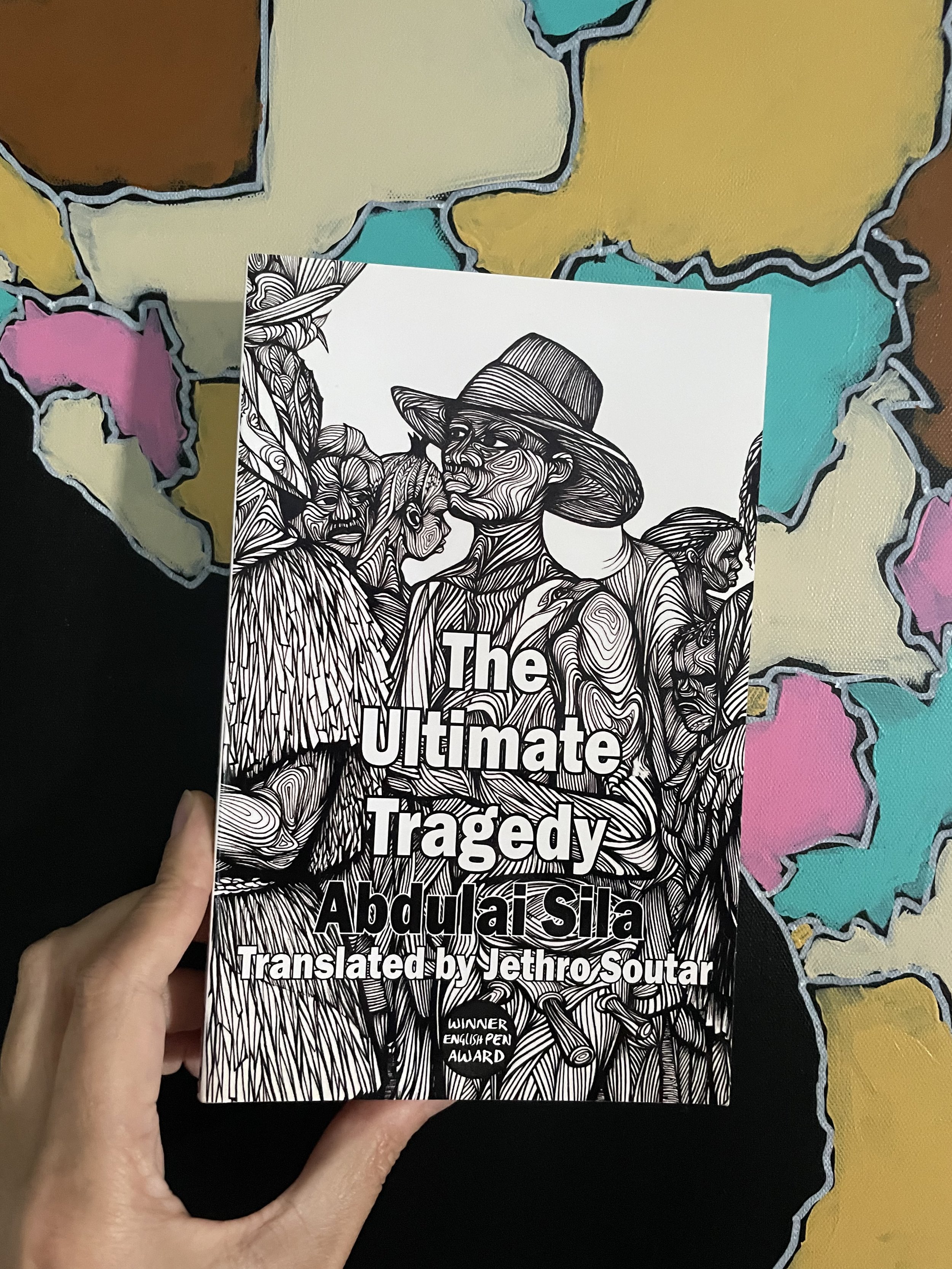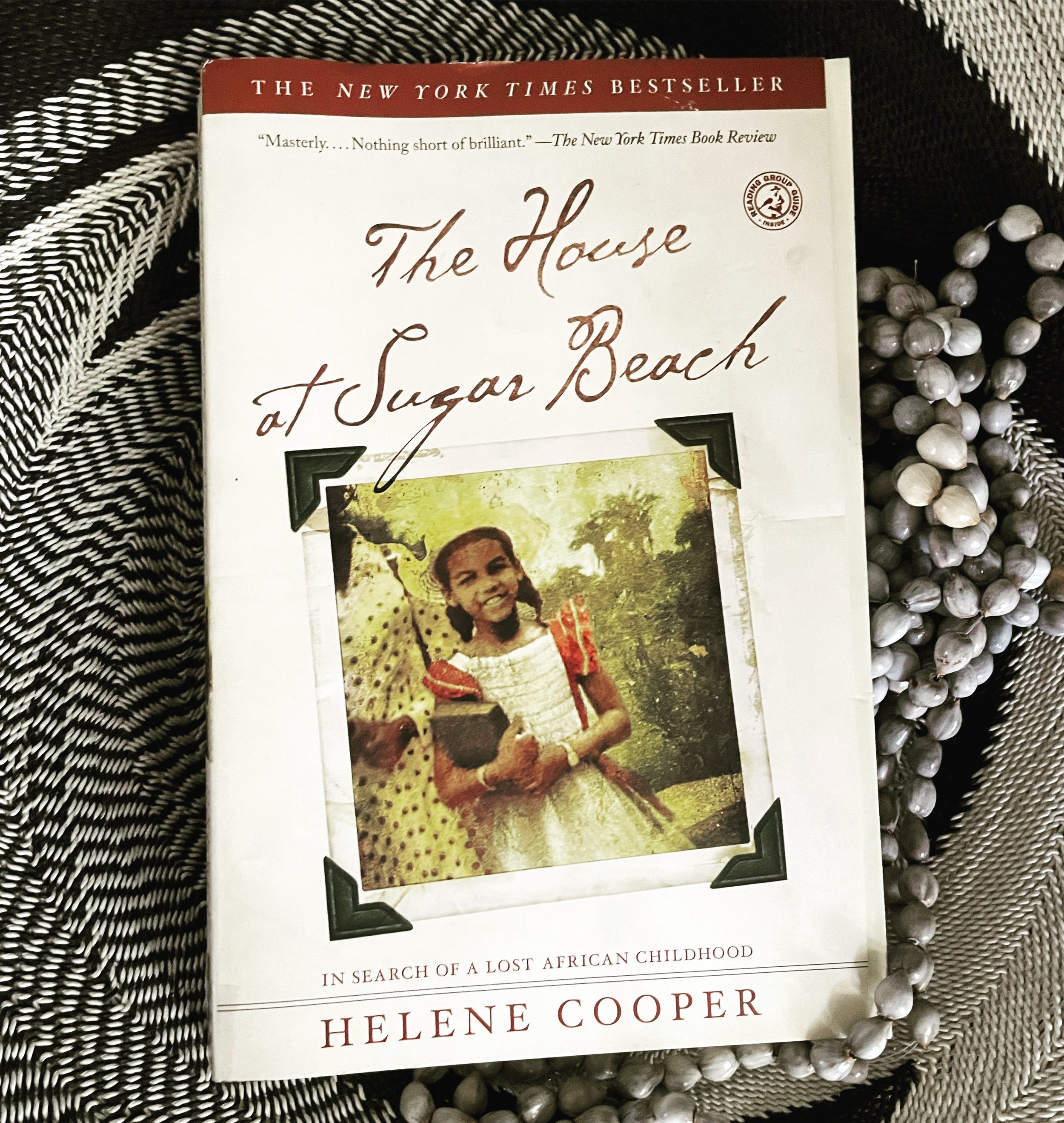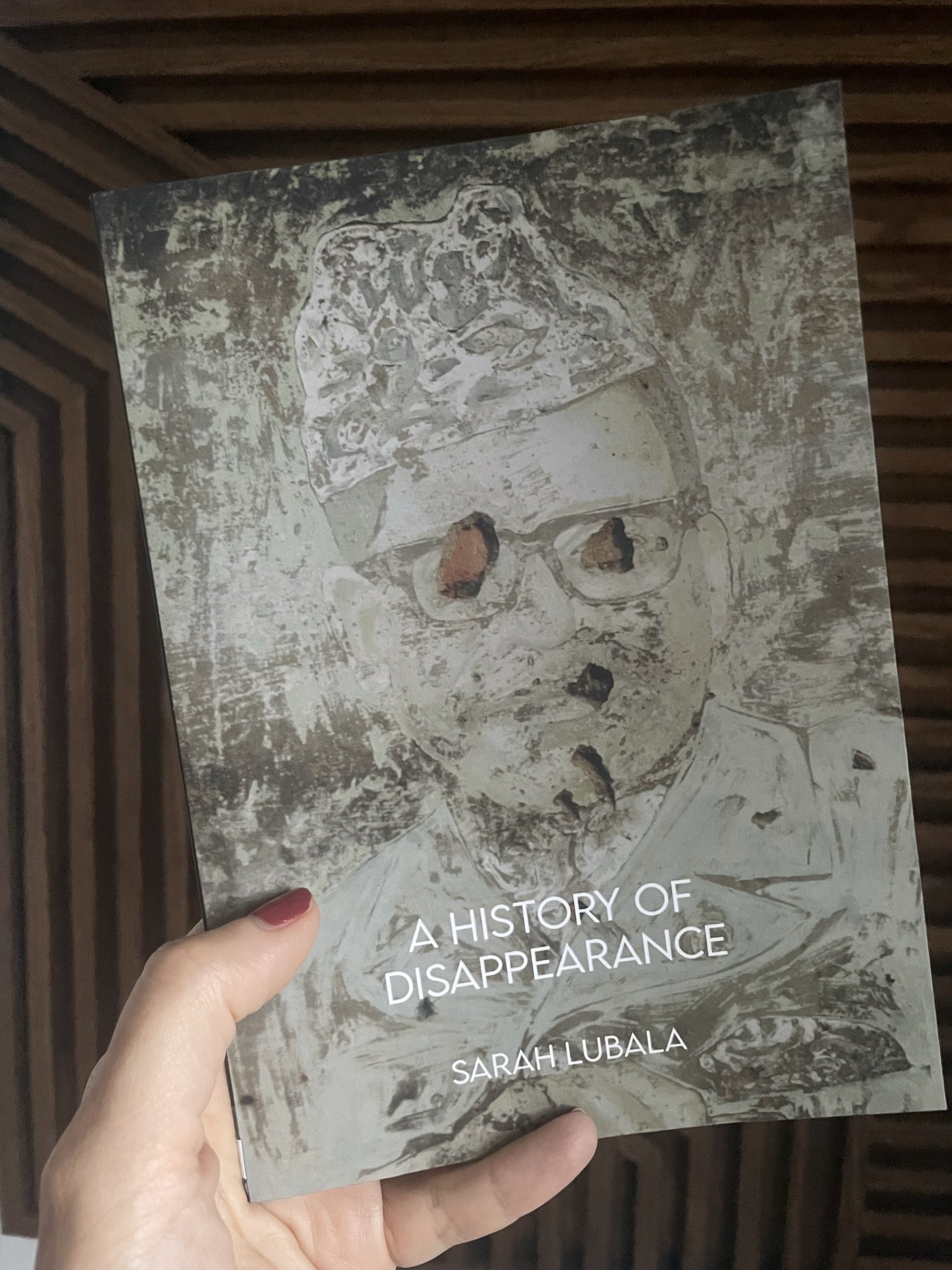From Marrakech to Mbabane
I set myself the challenge of reading a book from every country in Africa in one year, focusing on black African women writers where possible. Africa is not one thing, it is many. What better way to discover it than to read stories from that place, written by the people who lived them. Please get in touch if you’d like to learn more about this project.

Africa is a huge and diverse continent. So huge in fact, that the continental landmass could contain within its borders the entire United States, as well as China, India, Japan, and a handful of European countries. Despite its size, Africa suffers from ideas of homogeneity—as if it were not a continent, but a single, large country—with only a few themes about Africa occupying western imaginations. Ideas that African countries are constantly at war, that African men are universally violent, starving, poverty stricken, and awaiting western charity. In her brilliant TEDTalk, the Nigerian novelist, Chimamanda Ngozi Adichie addresses how relying on “single stories” to describe an entire continent leads to an over-simplification, in which the true richness, diversity, creativity, and individualism found throughout Africa is lost to stereotypes and caricatures.
I was born in South Africa. A white child with colonial roots and all the privilege my race and Apartheid allowed. Although I could find myself in the Anglo-centric storybooks I read, the world they described, in which swans drifted on babbling books lined with blue bells that ran through hedgerows, was entirely unfamiliar to me. A child who rode her bicycle in the sunshine, built forts in the veld, picked sharp blackjack seeds from her socks, and split open grenadillas fresh off the vine to suck out the wet seeds within. I loved to read, but in the books I was exposed to, the African world that was my home was invisible, and by implication, inferior.
Africa is not one thing, it is many. What better way to discover it than to read stories from that place, written by the people who lived them. A review of all the books I’ve read are below. Please get in touch if you’d like to learn more about this project.
The book list
My ideal when compiling this list was to find fiction books written by contemporary African women writers, who either lived in or had been born in Africa, and who’d written stories set in Africa. This ideal was challenged by things like availability, accessibility, and in a few cases, language. Some of the women writers I found have only been published in French or Portuguese and there were not always english translations available. In these cases I either chose a male writer from that country, or poetry or non-fiction books written by women.
Some countries, like Nigeria, Kenya, Ghana, and South Africa, have a rich literary tradition and have produced multiple writers who have achieved fame and been awarded and published all over the world. In these places I’ve tried to make less obvious choices, choosing writers I’d never read before.
Click below to see the full list.
Gambia
This quick, neat read by Sally Sadie Singhateh tells the moving and empathetic tale of a young woman’s struggle to come to terms with her past, and her culture, and confront the limitations it places on her prospects as a woman in Gambia. Born in 1977 in Banjul, Gambia, THE SUN WILL SOON SHINE is Singhateh’s second full-length published novel.
Guinea-bissau
THE ULTIMATE TRAGEDY, by Abdulai Sila is the first novel from Guinea Bissau ever to be translated into English. First published in 1995 and told from a young woman, Ndani’s point of view, the book is described as a tale of love and emerging political awareness in an Africa beginning to challenge Portuguese colonial rule. “By turns humorous, heartrending and wise, THE ULTIMATE TRAGEDY is a captivating novel that brings this little-known country to colourful, vivid life.”
Algeria
ALL MEN WANT TO KNOW is by Algerian writer Nina Bouraoui. I listened to the book on Audible, which gave it a very regional flavor as the narrator, Sara Powell read the story in Algerian and French accents. In her book, which is semi-autobiographical, Bouraoui explores ideas of identity, being one thing but not another, caught between France and Algeria, her French mother and Algerian father, her dual nationalities and the lives that each brings, and her sexuality.
LIBERIA
THE HOUSE ON SUGAR BEACH is a non-fiction memoir by Helene Cooper, about her childhood in Liberia, a small coastal country in West Africa and Africa’s oldest republic. Established in 1822, the country was founded by freed African-American slaves, who left the US (with the support of the American Colonization Society) and traveled back to Africa to reestablish a home for themselves as free men and women. Cooper’s family were descendants of the original founders and part of this ruling elite. Their privilege and ultimate downfall is the subject of Cooper’s fascinating memoir.
Somalia
To be perfectly honest, I began this book a little reluctantly, not altogether convinced I’d enjoy the story of a young Somalian boy’s long, lonely journey across multiple countries in the Horn of Africa to find his father. Although the story does drag a bit, and seems determined to make Jama the-boy-who-suffered-more-than-any-other-boy-has-ever-suffered, ever, the more I read, the more engaged I became with Mohamed’s richly constructed world and characters.
nigeria
I listened to the Audible version of STAY WITH ME by Nigerian write Ayọ̀bámi Adébáyọ̀, which is beautifully narrated by Adjoa Andoh. A contemporary tale of a young marriage between two people who sincerely love and care for one another, and the destructive and tragic choices they make when they remain childless and polygamy is forced on them by family members impatient for grandchildren.
Dem. Rep of Congo
“i was raised on the Congolese-gospel. i can teach you how to forget where you are from to worship the wide road before you hands open like this: make each palm a letter to the sky.”
cap verde
THE MADWOMAN OF SERRANO by Dina Salústio (translated by the Portuguese by Jethro Soutar) is the first novel by a female author to be published in Cape Verde, and the first to be translated into English. Set in an the isolated village of Serrano, the novel raises the question of madness when it is ascribed to a wise woman whose babbling may actually be prophecy.
equatorial guinea
Juan Tomás Ávila Laurel was born in Equatorial Guinea, but his novel THE GURUNGU PLEDGE is set on Mount Gurugu, overlooking the Spanish enclave of Melilla on the North African coast, where desperate migrants gather before attempting to scale the city’s walls and gain asylum on European soil, and where, on June 24, 2022, at least 37 migrants were massacred at the hands of Spanish security forces.
Comoros
Set on the Comorian island of Anjouan, A GIRL CALLED EEL is the story of Eel, her sister, Rattler, and her father, All-Knowing. The entire novel is written in one continuous, uninterrupted sentence as Eel relates the events that have bought her down the fateful path to what might be the final moment of her young life.
sierra leone
Aminatta Forna, author of THE MEMORY OF LOVE, was born in Scotland to a Sierra Leonean father and a Scottish mother. Her family moved to Sierra Leone when Forna was only 6-months old and where they lived for much of her childhood. Her father was a physician, but became involved in politics to counter what he felt was a corrupt and violent government, a position which lead to him being hanged on charges of treason when Forna was only 11-years-old. THE MEMORY OF LOVE is set in contemporary Sierra Leone where a devastating civil war has left an entire populace with secrets to keep.
zimbabwe
I was in high school when I read Tsitsi Dangarembga’s Nervous Conditions and I was very excited to read THIS MOURNABLE BODY, my Zimbabwean choice and book no. 24 in my #readafrica2022 challenge. Written in second person, I found the book hard to connect to initially, but once I did, I was completely drawn into the story. The removed perspective was a brilliant way to illustrate the disconnect in a character navigating past trauma and mental health challenges, and despite the narrative distance, the reader is drawn deeply into the protagonist’s inner world. Brilliantly written and definitely worth the challenge.
Madagascar
The stories in RED ISLAND HOUSE by Andrea Lee are sewn together by the narrative thread of the experience of a woman of color who, through marriage and wealth, finds herself in the position of colonial expatriate in a remote African world. The book reads like a collection of short stories, as Shay, an African American married to a wealthy hedonistic Italian, experiences the diverse people, cultures, and places on Madagascar.
botswana
MEETINGS WITH DEATH tells the story of Eana, a young southern African girl who has a unique relationship with Death. As she grows, so does Eana’s connection with one of the oldest supernatural beings in the universe, a connection that threatens her entire family. MEETINGS WITH DEATH explores themes of spirituality, magic, taboo, rituals, and the supernatural entities that are woven through African culture and belief.
Egypt
Nawal El Saadawi was born in a small village outside Cairo in 1931. Unusually for a women of her time, she was educated alongside her brothers and graduated from Cairo Medical School in 1955 with a specialization in psychiatry. Saadawi’s writing was inspired by her experiences of treating women in her medical practice. She was a vociferous critic of the Arab world’s treatment of women, and was imprisoned in, and exiled from Egypt for her outspoken politics. Saadawi died in 2021. “They said, “You are a savage and dangerous woman.” I am speaking the truth. And the truth is savage and dangerous.”
malawi
For my Malawi choice I am reading poetry by Upile Chisala, a storyteller from Malawi and a graduate of the University of Oxford. She is known for her short and powerful poems, which appear in a collection of three books—soft magic, a fire like you, and nectar. Chisala lives in Johannesburg, South Africa.
benin
My original choice for Benin was Olympe Bhêly- Quenum’s AS SHE WAS DISCOVERING TIGONY. Written by a man, and published in 2000, the choice did not represent my goal of reading contemporary African women writers, but I was struggling to find a women writer from Benin, whose work has been translated into English. After doing a bit more research, I have decided to read a collection of short stories, AUTOBIOGRAPHY OF THE LOWER EAST SIDE by Rashidah Ismaili Abubakr, a Beninois poet, playwright, essayist, and short story writer who was born in 1941 in Cotonou, Benin. Ismaili is often represented as a Nigerian writer, (her mother was from Benin but her father was from Kano in Northern Nigeria and Ismaili was married to a Nigerian). She married when she was only 15 and her husband was studying in New York at the time, so Ismaili was able to get a bursary in order to study in New York too and has lived here ever since.



















